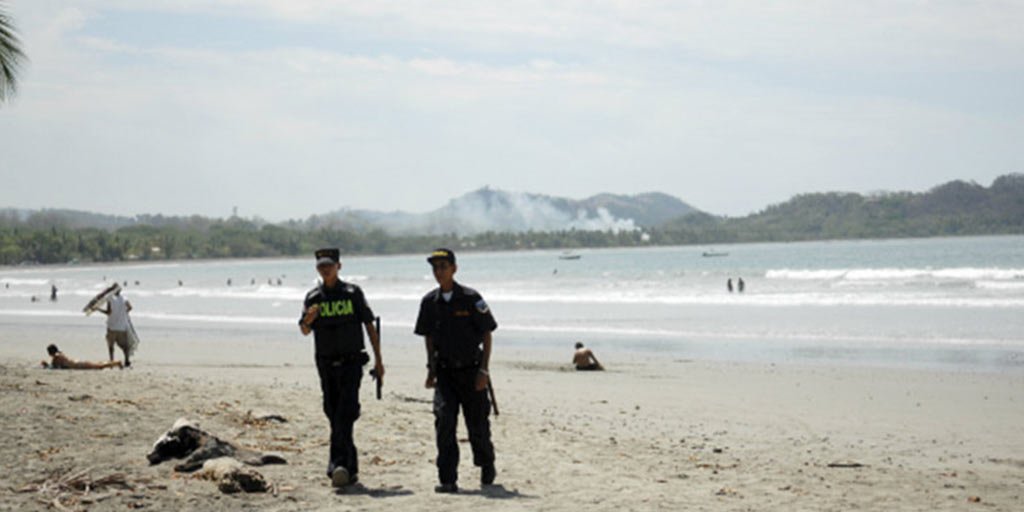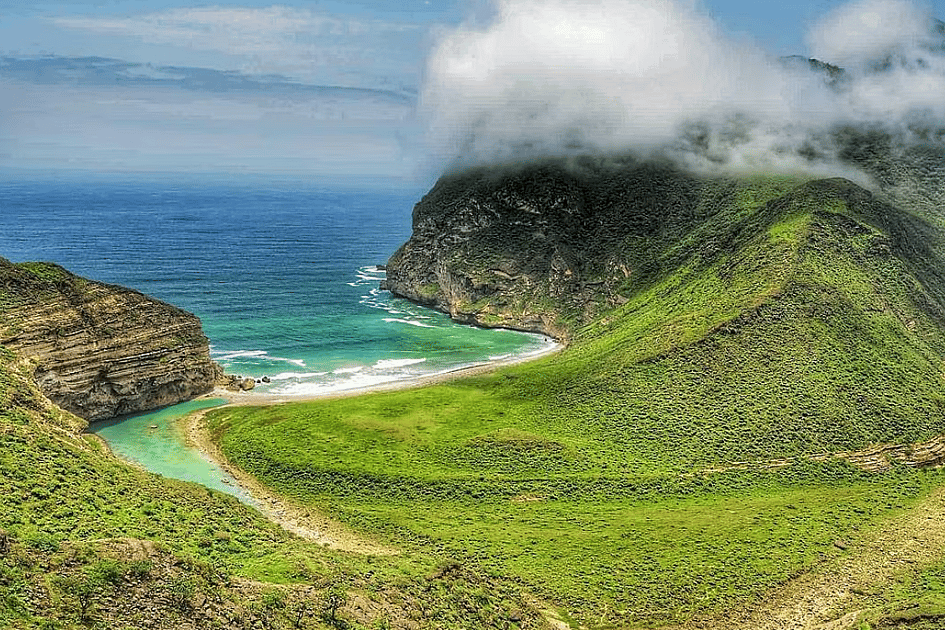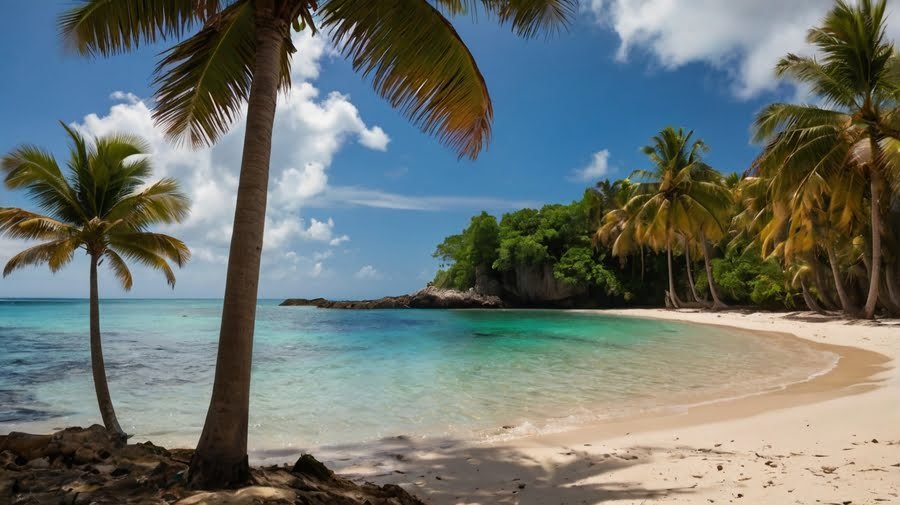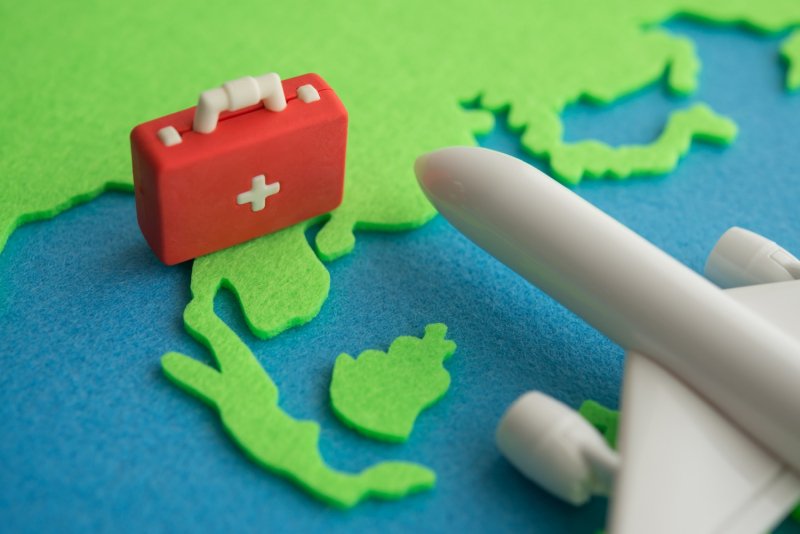Tips & Advices
Is Costa Rica Safe? Essential Safety Tips for Travelers

How safe is Costa Rica for visitors? Get our top travel safety tips, from places to avoid to violent crime, common travel scams and personal safety in Costa Rica.
Photo © Getty Images/Matteo Colombo
Costa Rica is top travel destination, celebrated for its eco-tourism, friendly people, and rich biodiversity. Yet, like any destination, it comes with its own set of safety considerations. Here’s what you need to know to stay safe while enjoying all that this beautiful country has to offer.
Is Costa Rica safe for travelers?
Nestled between Nicaragua and Panama, Costa Rica is unique in Central America for not having a standing army and for maintaining political stability.
But it can also be a deceptively risky place to visit, particularly for travelers who have no experience of traveling in Latin America.
Recent crime statistics and trends
In the 2024 Global Peace Index, Costa Rica ranks 58th out of 163 countries, reflecting a slight decrease from the previous year but still much higher up the list than neighboring countries. However, in 2023, Costa Rica saw a sharp increase in the homicide rate (to 17.3 per 100,000 people), highlighting a rise in violent crime. Petty crime, such as theft and pickpocketing, remains a concern, especially in tourist-heavy areas.
Tips for avoiding crime
- Travel in groups. If exploring early in the morning or late at night, it’s safer to go with companions.
- Secure your belongings. Keep valuables in a hotel safe and avoid displaying expensive items.
- Be cautious with public transport. Theft from overhead bins is common on buses.
- Be mindful on beaches and remote areas. Solo travelers, particularly women, are vulnerable on beaches at times when there are no others around.
- Use reputable services. Do your research and choose well-reviewed tour operators.
- Avoid camping on beaches. It’s best to find secure accommodation at a lodge or hostel.
- Theft from unattended vehicles is on the rise. Park in well-lit or guarded areas, always keep the doors locked and windows rolled up, and never leave anything of value in plain sight.
Safety for families
Costa Rica is a family-friendly destination with plenty of activities suitable for children and teens. Families generally face fewer safety issues than solo travelers due to the natural protection of traveling in groups and less involvement in risky behavior.
Safety for LGBTQ+ travelers
Costa Rica is known for its relatively progressive stance on LGBTQ+ rights. Same-sex marriage has been legal since 2020, and the country is generally accepting. However, public displays of affection might still draw unwanted attention in more conservative areas. LGBTQ+ travelers are advised to be mindful of local customs, particularly in rural settings.
Safety for women travelers
Solo female travelers should exercise increased caution. While many women travel to Costa Rica without incident, it’s wise to stay in social accommodations, avoid isolated areas, consider joining group activities, and stay vigilant. The increase in sexual assault cases in recent years means that extra precautions are advisable.
Areas to be cautious of
Certain regions in Costa Rica are known for higher crime rates. While traveling, avoid or exercise extreme caution in:
- Quepos: The gateway town to Manuel Antonio National Park, with reports of robberies.
- Tamarindo and Jaco: Popular beach towns showing a rise in crimes targeting tourists.
- San Jose: Particularly the downtown area and parks after dark. Avoid neighborhoods such as Los Guido, Desamparados, Leon III, and La Carpio.
- Limón and Matina: Higher violent crime rates compared to the national average.
Planning a trip to Costa Rica? Find out how travel insurance can cover lost or stolen baggage, sudden illness, or other travel mishaps.
General travel safety tips
- Visit during dry season: December through April offers the sunniest weather for travel. The rainy season (May-November) is cooler and less crowded, but you should expect afternoon showers and occasional flooding.
- Hydrate safely: Tap water is generally safe except in Limón and Puntarenas. Consider bottled or filtered water for extra precaution.
- Avoid methanol contamination: Be wary of cheap alcohol, which may contain harmful methanol. Stick to trusted establishments and order bottled beer rather than mixed drinks.
- Stay food safe: Costa Rica has national standards in place for food safety, but it’s still good to be cautious. Avoid buffets where food is sitting out and food stalls with poor hygiene.
Hiking and adventure safety
Costa Rica offers abundant wilderness and adventure opportunities, but the rainforest can pose serious dangers, including venomous snakes. Always explore with a local guide or in groups, inform someone of your plans, and avoid hiking, trekking, or camping solo. Ensure your adventure provider has a strong safety record, especially for activities like zip-lining and rafting.
Common travel scams
- Tire slashing: Be cautious of “good Samaritans” who offer help after a flat tire. It’s safer to drive to a well-lit area to change your tire.
- Car rental insurance: Be aware of mandatory insurance costs not included in advertised rental prices. Ask for a full breakdown of charges.
- Money scams: Exchange money only at reputable banks and beware of street scammers.
- Passport theft: Keep your passport secure in a hotel safe and carry a photocopy of your passport and entry stamp.
Legal and police considerations
- Know your rights: If detained, you have the right to know the reason, contact your embassy, and consult with a lawyer.
- Respect photography rules: Avoid taking photos of official buildings and be considerate about photographing individuals, especially women and children.
Drug laws and crime in Costa Rica
Trafficking or selling any type of illegal drug is a serious offense in Costa Rica. If you are caught, you will be arrested and could face either a hefty fine or a lengthy prison sentence. You may meet locals who will offer to sell you drugs, usually marijuana. If you buy it, do so at your own risk; marijuana is illegal in Costa Rica, but personal possession has been decriminalized.
For more up-to-date information and travel tips, keep an eye on local news and travel advisories.
Tips & Advices
Khareef season: Omani authorities issue safety tips for travelling to Dhofar after crash

In the midst of Salalah’s Khareef season, many UAE residents drive to Oman to experience the lush green landscape as the monsoon rain touches the land.
While the rains bring cooler temperatures and helps create unforgettable moments, it can also bring about safety hazards, particularly near water bodies. Stressing the need to exercise caution, Omani police shared safety tips for those travelling to Dhofar:
Stay up to date with the latest news. Follow KT on WhatsApp Channels.
-
Do not park your vehicle in unsafe places, such as near slopes. This puts your life and the lives of others at risk. Be responsible and stay away from dangerous locations.
-
Never leave children unattended near ponds and bodies of water, as even a moment of inattention can cost you
-
Keep the vehicles clean, and avoid dirty cars. Do not obscure the plate number, as owners can be held legally accountable for this
-
Passengers must not lean out of the window or roof of the car while driving recklessly; this can also expose you to legal accountability.
In a tragic accident in early July, a multi-vehicle collision in Dhofar killed 5 people, including two Omanis and three Emiratis who were from the same family. The crash injured eleven others, including two Omanis and nine Emirati citizens of which five are children.
The Emirati family members who died in the crash are a couple, and the wife’s mother. The couple’s eight-month-old daughter was hospitalised in Oman.
The family had travelled to Salalah for a summer break, but the tragic accident occurred just 12 hours after they left the UAE.
After the collision, UAE travellers spoke to Khaleej Times, sharing precautions to take while planning the journey, such as ensuring the vehicle is in good condition.
They also shared safety advice for driving through the tricky terrain, such as checking fuel levels, and driving at a speed lower than the speed limit in some areas.
Tips & Advices
US Issues Urgent Level 2 Travel Advisory for Dominican Republic Highlighting Crime Risks and Essential Safety Tips for Travelers

Sunday, July 20, 2025
The U.S. Department of State has recently updated its travel advisory for the Dominican Republic, now categorized as a Level 2 destination, advising American travelers to “exercise increased caution” due to the persistent threat of crime. This update follows concerns about violent crime, including robbery, homicide, and sexual assault, in popular tourist areas. However, while some critics have dismissed the warnings, the Dominican Republic continues to attract millions of international visitors each year. Here’s an overview of what travelers should know about the advisory, safety tips, and why this Caribbean gem remains a top vacation destination.
U.S. Travel Advisory Update for the Dominican Republic
On June 12, 2025, the U.S. Department of State elevated its advisory for the Dominican Republic to Level 2, urging travelers to “exercise increased caution.” This warning highlights the risk of violent crime despite the heightened police presence in areas frequently visited by tourists. The advisory pointed out that both locals and tourists may be vulnerable to robbery, sexual assault, and homicide, with criminals often escaping prosecution. However, the Level 2 advisory is considered a moderate alert, advising travelers to be aware of increased risks, but not urging a halt to travel entirely.
Level 2 advisories are a common designation for many tourist destinations around the world, and the Dominican Republic shares this rating with other popular travel spots such as Panama, the Netherlands, and the Philippines.
The Canadian government has also issued a similar advisory, cautioning travelers to “exercise a high degree of caution” due to concerns about violent and petty crime, including fraud, poor road conditions, and issues with public transportation. Despite these risks, the country remains a top destination for North American tourists.
How to Stay Safe in the Dominican Republic
While the U.S. travel advisory highlights the risks present in the Dominican Republic, travelers can take several precautionary steps to ensure a safe and enjoyable trip. The U.S. Department of State has provided key safety recommendations, including:
- Stay Vigilant: Always be aware of your surroundings, especially in crowded or unfamiliar areas.
- Avoid Flashy Displays: Keep valuables like phones, jewelry, and expensive items out of sight.
- Travel in Groups: If possible, explore with others rather than traveling alone, especially in unfamiliar areas.
- Secure Your Belongings: Never leave your food, drinks, or personal items unattended, and always be cautious in public spaces.
- Use Trusted Transportation: Experts recommend using reputable taxi services or ride-sharing apps like Uber instead of unregistered motorcycle taxis (motoconchos).
For emergencies, the Dominican Republic provides reliable services including the 911 emergency response system and a tourist police force (POLITUR), ensuring that help is available when needed. Many resorts also offer private security personnel, and it is strongly advised to stay within the safety of the resort boundaries, particularly for first-time visitors.
Cultural Awareness and Preparation
To ensure smooth travel experiences, it is recommended that visitors familiarize themselves with the local culture, norms, and language. Knowing basic Spanish phrases and understanding the country’s political sensitivities—such as its complex relationship with neighboring Haiti—can enhance both safety and comfort during a stay. Additionally, being respectful of local customs and traditions can help avoid misunderstandings and ensure a more enriching trip.
Why the Dominican Republic Remains the Caribbean’s Top Destination
Despite the recent advisory update, the Dominican Republic continues to be the Caribbean’s most visited country. In 2024, the island saw 34.2 million international arrivals, marking a 6.1% increase from the previous year. American tourists represent a significant portion of this traffic, accounting for nearly half of the arrivals during the first half of 2024.
However, there has been a slight decline in North American visitors in 2025, with a 5.12% drop in American arrivals and a 4.43% decrease in Canadian travelers compared to the same period in 2024. The Ministry of Tourism attributes these declines to seasonal factors such as the leap year and changes in holiday scheduling. On a positive note, South American tourism has surged, with a 31.3% growth in arrivals from that region during the first quarter of 2025.
The Dominican Republic remains a beloved destination thanks to its white-sand beaches, vibrant culture, warm climate, and relatively low-cost travel options. The country’s straightforward entry requirements, including minimal visa processes for most travelers, also contribute to its popularity.
Conclusion
While the U.S. Level 2 advisory highlights valid safety concerns, the Dominican Republic continues to be a top choice for millions of travelers. With proper precautions, visitors can still experience the beauty and charm of this Caribbean paradise. The country’s world-class resorts and tourist destinations are well-equipped to ensure safety, making it a top contender for those seeking a tropical getaway.
Whether you’re attracted to the pristine beaches, the rich cultural heritage, or the affordable vacation options, the Dominican Republic remains a dream destination for travelers worldwide. By staying informed and following safety tips, tourists can continue to enjoy all the beauty the island has to offer while minimizing risks.
Tips & Advices
You really should get health insurance when travelling abroad – BusinessDesk | NZ
-

 Mergers & Acquisitions1 week ago
Mergers & Acquisitions1 week agoAmazon weighs further investment in Anthropic to deepen AI alliance
-

 Mergers & Acquisitions1 week ago
Mergers & Acquisitions1 week agoHow Elon Musk’s rogue Grok chatbot became a cautionary AI tale
-

 Asia Travel Pulse2 weeks ago
Asia Travel Pulse2 weeks agoLooking For Adventure In Asia? Here Are 7 Epic Destinations You Need To Experience At Least Once – Zee News
-

 Mergers & Acquisitions1 week ago
Mergers & Acquisitions1 week agoUK crime agency arrests 4 people over cyber attacks on retailers
-

 Brand Stories2 weeks ago
Brand Stories2 weeks agoVoice AI Startup ElevenLabs Plans to Add Hubs Around the World
-

 AI in Travel2 weeks ago
AI in Travel2 weeks ago‘Will AI take my job?’ A trip to a Beijing fortune-telling bar to see what lies ahead | China
-

 Mergers & Acquisitions1 week ago
Mergers & Acquisitions1 week agoEU pushes ahead with AI code of practice
-

 Mergers & Acquisitions2 weeks ago
Mergers & Acquisitions2 weeks agoChatGPT — the last of the great romantics
-

 The Travel Revolution of Our Era1 month ago
The Travel Revolution of Our Era1 month agoCheQin.ai Redefines Hotel Booking with Zero-Commission Model
-

 Mergers & Acquisitions1 week ago
Mergers & Acquisitions1 week agoHumans must remain at the heart of the AI story

